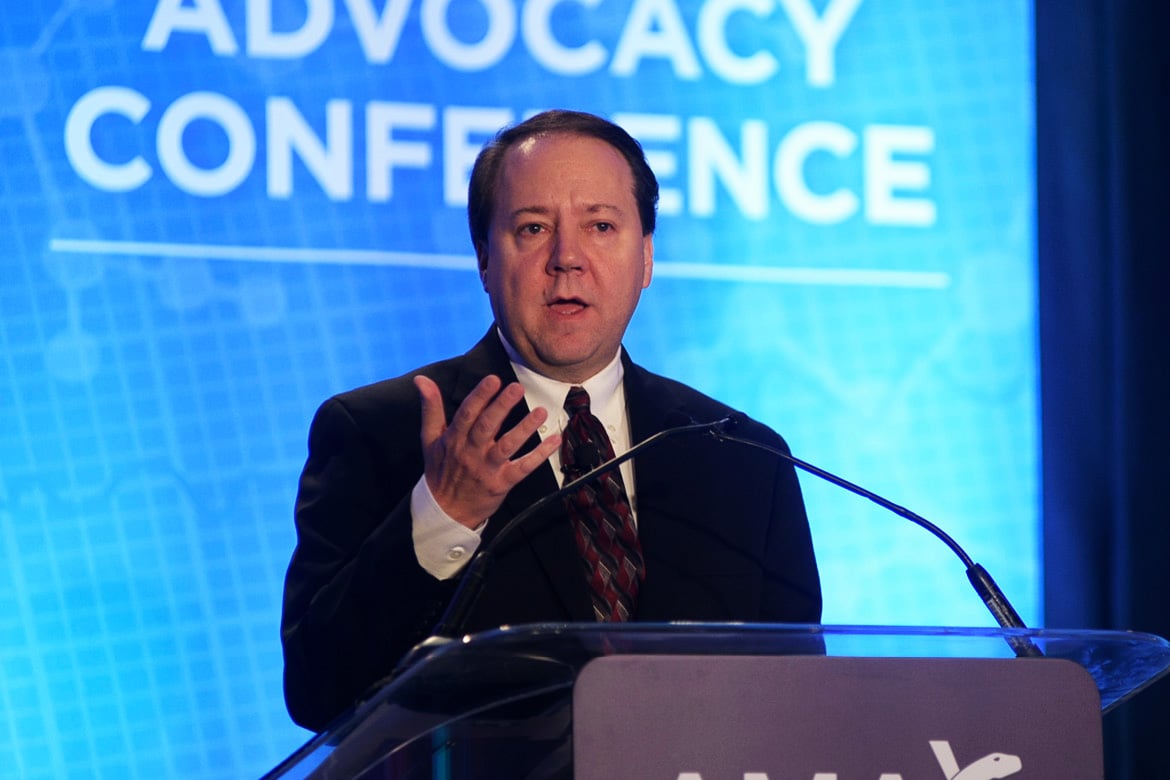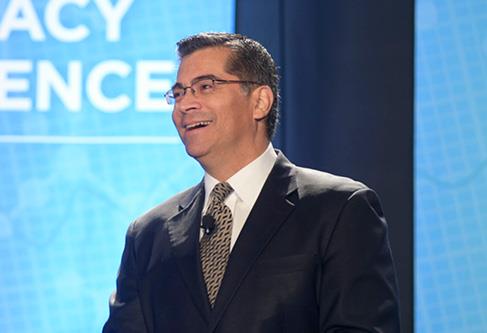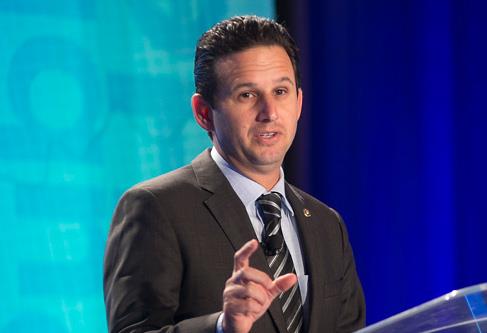Three members of Congress spoke to physician leaders last week at the 2016 National Advocacy Conference about the top federal issues in health care and the importance of physician advocacy. Find out what they had to say about new payment systems, telemedicine and the role of the physician.
Physicians need to be at the center of meaningful change
“What we need to actually do is [support] something that makes sense,” said Rep. Pat Tiberi, R-Ohio. “How do we have a model health care system that’s patient-centered, and at the very top of that patient-centered health care system is the importance of the doctor-patient relationship?”
Tiberi told physicians that, other than treating their patients, there is no more important way they can spend their time than advocating for medicine. “There really isn’t anybody more important in the health care space than you,” he said, “a doctor.”
“If your child is sick, who is the most important person—the pediatrician. I’ve been there,” he said. “[There is] nobody more important in the world. If you have an aging parent who maybe now is beginning to be forgetful or you see some signs of disease, there is no more important person than the right doctor.”
Rep. Xavier Becerra, D-Calif., reminded physicians of a major victory from just one year ago. “We just buried [Medicare’s sustainable growth rate formula],” he said to great applause. “Now, we’ve got this new baby and this was a complicated birth—this new physician payment system. We’re still trying to incubate it.”
“Make sure you’re working with us so we can make sure the implementation of this new payment scheme works for everyone,” Becerra suggested. “It will have bugs, but come to us, and we [will] all go together to Andy [Slavitt] and the folks at CMS.”
Telemedicine is advancing
Physicians also heard a congressional perspective on telemedicine. The possibilities for telemedicine abound, but current legislation and regulation prevent its expansion. Sen. Brian Schatz, D-Hawaii, is leading a coalition to propose the Creating Opportunities Now for Necessary and Effective Care Technologies or CONNECT for Health Act, which it introduced earlier this month.
“The CONNECT for Health Act … will lift Medicare restrictions on the practice of telemedicine,” Schatz said. “It will do so in a cost-effective, quality-oriented way that will keep safeguards for doctors and patients.”
Schatz pointed to the Social Security Act as the basic problem in telemedicine that must be fixed. “This is an old law that was written before the advent of smartphones and other technologies,” he said. The senator cited these five statutory restrictions that are holding telemedicine back:
- Patients receiving a telemedicine visit only may be in certain locations that include a physician office, rural health clinic or hospital.
- Patients must be located only in certain rural areas.
- Only certain practitioners can provide telemedicine services, according to existing definitions.
- Store and forward technology is permitted only in federal telemedicine demonstration programs conducted in Alaska or Hawaii.
- Telehealth coverage is restricted to specific codes under the U.S. Department of Health and Human Services rules developed in an annual process.
“We structured [the CONNECT for Health ACT] in a way that it will still lift restrictions,” Schatz said, “but do so in a way that would save Medicare money.”
Some of the key elements of the bill include:
- A bridge program to help physicians transition to the new Medicare Access and Chip Reauthorization Act payment system through the use of telehealth.
- The lifting of geographic restrictions is subject to state licensing requirements. It allows alternative payment models in Medicare to use telehealth without the existing restrictions.
- Allowing telehealth to be a basic benefit under Medicare Advantage plans.
- Expanding originating sites for telestroke and Native American programs.
“The AMA commands respect in the nation’s capital on both sides of the aisle, and your support for our bill is a big boost,” Schatz said. “Being here today is special for me because I’m the son of a physician. … [My father] was my role model for public service, and as a result my admiration for the medical profession is deep and is personal.
“I also know from my father that the personal and professional satisfaction from being in medicine being a doctor in America in 2016 comes with its share of frustrations, from billing and bureaucracy to EMR to managed care and everything in between,” he said. “But [now] there is something to be hopeful about. The CONNECT for Health Act … will lift Medicare restrictions on the practice of telemedicine.”
“But in order to do that we need this bill to get a hearing in both chambers,” Schatz said. “And we need it to eventually pass through the legislative process. That won’t happen without all of your advocacy.”






